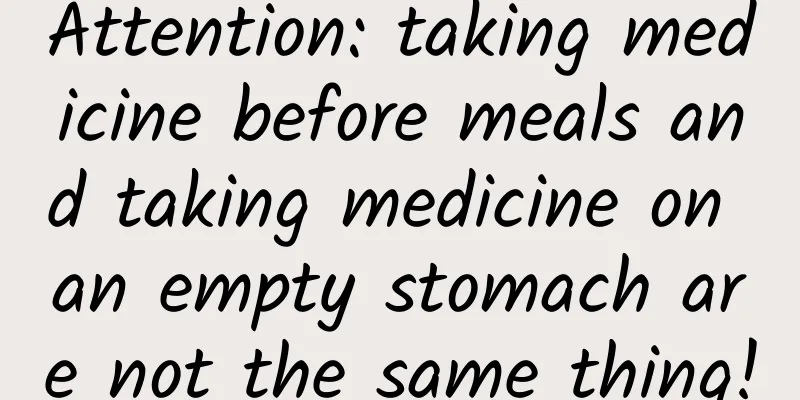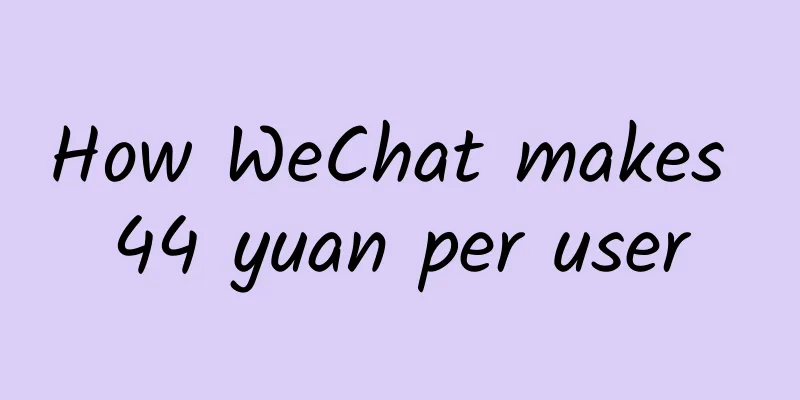Attention: taking medicine before meals and taking medicine on an empty stomach are not the same thing!

|
When people eat grains, it is inevitable that they will encounter minor illnesses and need to take medicine, which involves many issues about the way to take medicine. For example, some medicines require to be taken after meals, and some medicines are best taken before meals. Many people understand this "taking medicine before meals" as taking medicine on an empty stomach, but this understanding and practice is wrong! Tuchong Creative 01 Taking medicine on an empty stomach Need to be separated from food for a certain period of time Why do different drugs have different time requirements for taking? This has to start with the digestion and absorption of food and drugs in the gastrointestinal tract, because changes in the physiological conditions of the gastrointestinal tract have a great impact on the absorption of drugs. The stomach is a hollow sac-like organ, whose main function is to temporarily store food for initial digestion. An adult's stomach can generally hold 1-2L of food, so people only need to eat 2-3 meals a day. After a full meal, the food can slowly enter the small intestine from the stomach. Food is chewed and ground in the mouth, and the tongue stirs the food and saliva to form a food mass, which is then swallowed into the stomach. The food stays in the mouth for a very short time, generally only 15-20 seconds. When eating, the stimulation of food on various receptors can also reflexively cause the secretion of saliva, gastric juice, pancreatic juice, bile, changes in the activity of the stomach and gallbladder, and the secretion of insulin, preparing for the digestion of food. After entering the stomach, the food is subjected to the mechanical action of the contraction of the stomach wall muscles and the chemical digestion of the gastric juice. The protein in the food is initially decomposed, and the stomach contents become porridge-like chyme, which is gradually discharged into the duodenum through the pylorus in small amounts. Tuchong Creative Normal people secrete 1.5-2.5L of gastric juice every day, the main components of which are hydrochloric acid, pepsinogen, mucus, intrinsic factor, sodium, and potassium chloride. After a day and night of fasting, the hydrochloric acid excretion of a normal person is 0-5mmol/hour, which can reach 20-25mmol under the stimulation of food and drugs. The pH of gastric juice is 0.9-1.5 when fasting, and it can rise to 3.0-5.0 after drinking water or eating. Since the pH of gastric juice is acidic, it is conducive to the absorption of weakly acidic drugs (less drug dissociation, high molecular weight, and high fat solubility), but not conducive to the absorption of weakly alkaline drugs. Drugs marked as needing to be taken on an empty stomach generally need to be taken 1 hour before or 2 hours after meals. For example, enteric-coated tablets, which do not disintegrate in gastric juice and are absorbed only in the intestines, need to be taken on an empty stomach. Other drugs that should be taken on an empty stomach include: anthelmintics, tonic Chinese medicines, saline laxatives, and alendronate sodium tablets. Tuchong Creative 02 Medicines to take before meals Prefer to be absorbed with food Generally, 5 minutes after food enters the stomach, the stomach will begin to peristalsis at a frequency of 3 times per minute. Gastric peristalsis can fully mix the medicine and food, and at the same time has a dispersing and stirring effect, allowing the medicine to fully contact the gastric mucosa, which is beneficial to the absorption of the medicine in the stomach. Each peristaltic wave can push 1-2 ml of chyme medicine toward the duodenum. The emptying of different foods is different, which is related to the physical properties and chemical composition of the food. Generally speaking, thin fluid foods are emptied faster than thick or solid foods, small-particle foods are emptied faster than large-particle foods, isotonic liquids are emptied faster than non-isotonic liquids, and undigested solid foods are emptied the slowest. Among the three main nutrients, the order of emptying time from long to short is: fat>protein>carbohydrate. After people eat a fatty meal, gastric motility is inhibited and gastric emptying time is prolonged. It usually takes 4-6 hours for mixed food to be completely emptied from the stomach; in addition, temperature also affects emptying, and solutions above or below body temperature are emptied more slowly. Tuchong Creative The food that enters the stomach is arranged in layers according to the order of swallowing, that is, the food that enters the stomach first contacts the stomach wall, and the food that enters the stomach later enters the center of the stomach cavity and temporarily does not contact the gastric mucosa. Therefore, drugs that are easily affected by gastric acid should be taken before meals, and drugs that irritate the stomach should be taken after meals. It should be noted that taking medicine before meals generally means taking the medicine 15-30 minutes before meals, which includes gastrointestinal motility drugs, gastric mucosal protectants, choleretic tablets, mucolytics, etc.; taking medicine during meals means taking it with food; and taking medicine after meals does not mean taking the medicine immediately after meals, but it is best to take it after a gap of 15-30 minutes. In addition to drugs that have a greater irritation to the gastrointestinal tract, vitamin drugs are also better digested when taken after meals. Tuchong Creative In short, affected by factors such as the patient's physiological and pathological conditions, the physical and chemical properties of food and drugs, and other factors, the effects of taking medicine on an empty stomach and before or after eating are different. Therefore, in order to achieve the best effect, you must read the drug instructions carefully before taking the medicine, and take it strictly in accordance with the drug instructions and doctor's instructions. References: [1] Yin Xiaoxing, Yang Fan. Biopharmaceutics and Pharmacokinetics 2nd Edition. Beijing: Science Press, 2017.1:18-21. [2] Chen Xinqian, Jin Youyu, Tang Guang. New Pharmacology 17th Edition. Beijing: People's Medical Publishing House, 2011.12:15. [3] Yue Limin. Physiology. Beijing: Science Press, 2002.2:165~178. Textbook for higher medical schools in the 21st century. Author: Wang Yulan, Deputy Director and Pharmacist, Quality Control Office, Pharmacy Department, Chengdu Women and Children's Central Hospital Review | Li Gen, Director of the Pharmacy Department, Chengdu Women and Children's Central Hospital, Chief Pharmacist This article is produced by the "Science Rumor Refutation Platform" (ID: Science_Facts). Please indicate the source when reprinting. The pictures in this article are from the copyright gallery and are not authorized for reproduction. |
<<: World Food Day: Chinese grain brings a sense of security to the Chinese people
>>: Food Safety | Learn how to drink milk tea healthily in one picture?
Recommend
After Zhihu and Kuaishou, who will be the next traffic gold mine?
WeChat will become more and more "formal&quo...
Will showing IP location leak personal information? This move is very dangerous
【Written at the end】 The current display function...
Apple iOS 14.5/iPadOS 14.5 official version released: iPhone 12 5G optimization, AirTag "Find", App tracking transparency, iPhone 11
IT Home reported on April 27 that one week after ...
IFR: Understand the current status and trends of global industrial and service robots in one article
The International Federation of Robotics (IFR) re...
Why Android is better than iOS? The open and free Android is more powerful.
When buying an Android phone, users actually have...
A man in Hong Kong was arrested for holding a Hong Kong independence flag! What is the situation now? Attached event details
With the implementation of the Hong Kong National...
Marketing course-It is important to introduce products to customers step by step
The secret to successful sales is to skillfully l...
From 0 to 1, how to obtain seed users?
Product operation from 0 to 1: A series of articl...
Are you a socially adept or a socially phobic person? Let your intestines decide.
In recent decades, scientists have come to unders...
Intel evaluates AMD Ryzen: Kaby Lake is enough to suppress
AMD Ryzen processor will be available at the end ...
Why does frostbite recur in winter? How to prevent it? Here is everything you want to know...
Expert of this article: Li Tian, Chief Physicia...
Case Study: Review of Tmall’s 21-Day Vitality Plan
From the news on April 10th that Yi Yang Qianxi w...
AiKop | See the 72 changes of modern ships
Do you know the origin of the name "cruise s...
Apple Pay's future of attracting money across the sea is uncertain, and Alibaba Terminal is the key
Soon after the launch of the new iPhone, Apple Pa...
APP infringement continues despite repeated bans? The Ministry of Industry and Information Technology strikes hard again
In this era of advanced Internet, there are endle...









